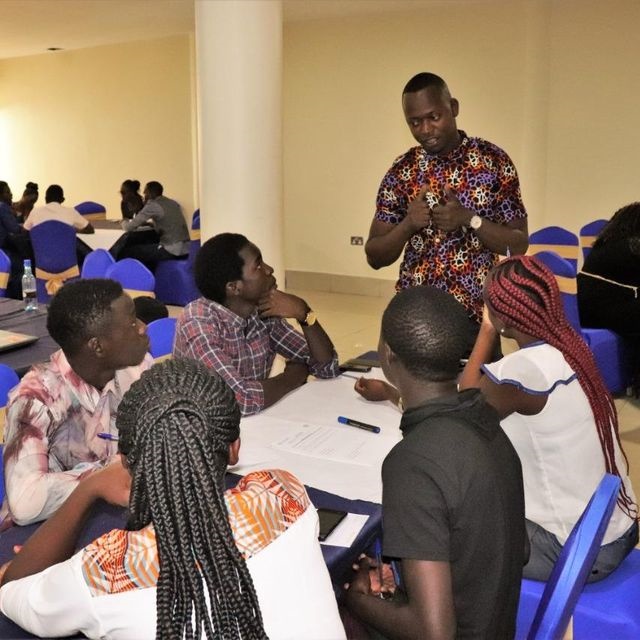Fostering Youth-Led Civil Society Organizations in Kenya and Nigeria
Date : February 2020

Through our work around the world, we witness how young people are primary targets of armed groups of all stripes. This is notably true for violent extremist networks, which tend to focus their recruitment on individuals between 15 and 30 years old. This is evident among al-Shabaab and Boko Haram in Kenya and Nigeria, respectively, which capitalize on young people’s sense of economic, social, and political marginalization and despair.
Young people also play pivotal roles as leaders for positive change. Both Kenya and Nigeria have a vibrant, youth-led civil society landscape, which has proven critical to building and sustaining resilient communities. Yet civil society—particularly youth people—working in communities impacted by violent extremism often struggle to secure and sustain the funding required to maintain long-term programming and establish formal organizations. Many civic and nonprofit leaders are not connected to regional or national communities of practice, much less international networks—hindering their ability to contribute to and capitalize on peer expertise and resource-sharing.
It is in this context that we recognized the opportunity to invest in the next generation of change-makers and peacebuilders in Nigeria and Kenya. With a focus on organizations in regions with high levels of violent extremist activity, we made a multi-year commitment to twenty grassroots violence prevention initiatives, including through the provision of small grants, capacity development, and networking and mentoring opportunities. Our partnership effectively equipped youth Nigerian and Kenyan leaders with the skills, networks, and resources to address community grievances, stand up localized communities of practice, and ultimately stem the growth of extremist violence.
Our capacity development and training programs draw heavily on train-the-trainer and other peer-to-peer models to help ensure ownership by participants as well as the sustainability of these programs after our role formally ends. These workshops included an innovative peer exchange: Kenyan facilitators traveled to Nigeria and Nigerian facilitators traveled to Kenya, with both leading workshops to share their insight into combatting the strategies and methods used by al-Shabaab, Boko Haram, ISIS, and al-Qaeda. The program presents a successful new model for grantmaking that foregrounds hyper-local community and youth engagement as requisites in preventing violent extremism. Further, the framework for pairing regions and countries on the basis of shared experiences is easily replicable.
See More